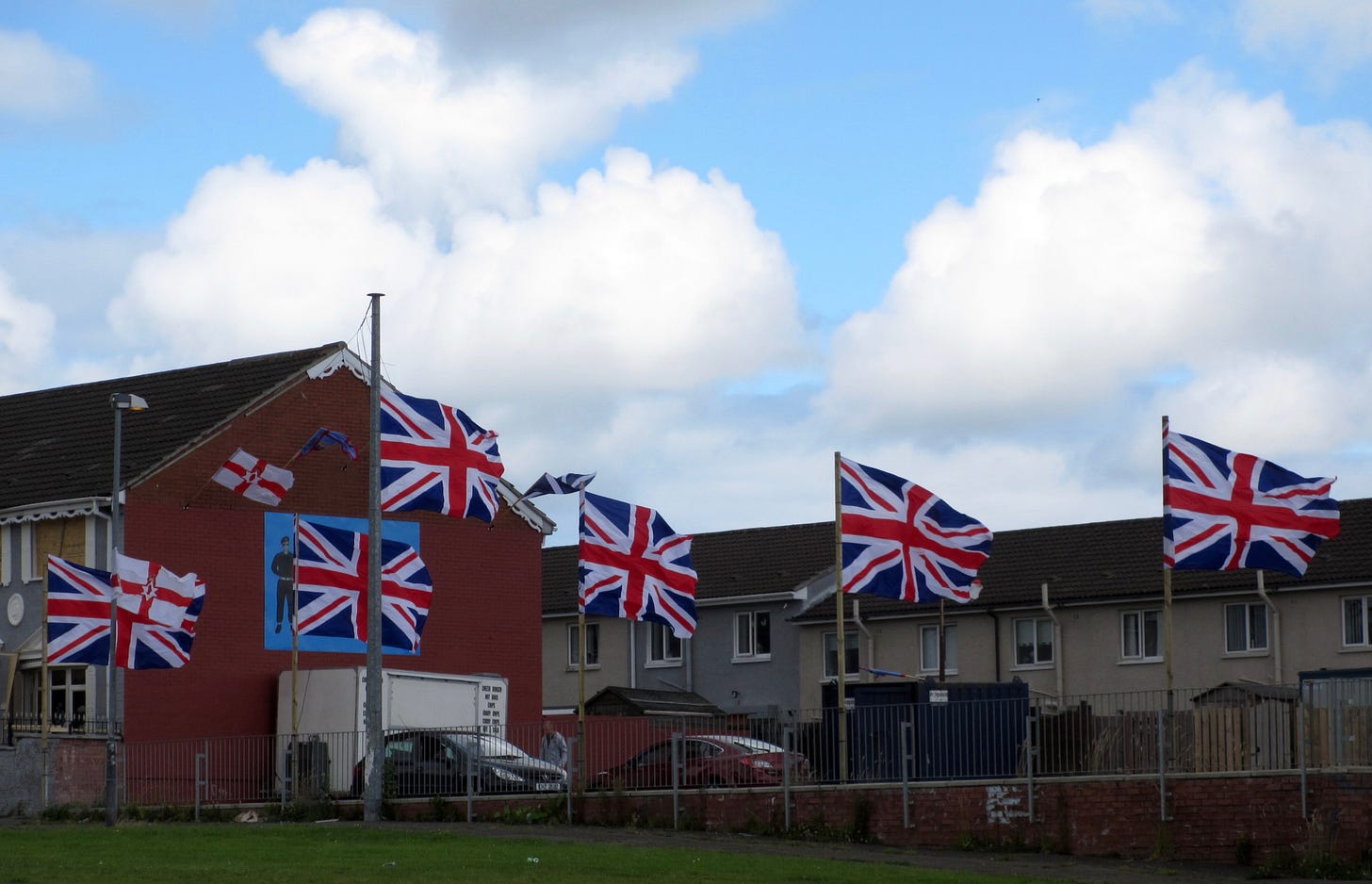The Northern Irelandisation of British politics
There are emerging - and striking - parallels between events in the province and on the mainland
Paul Embery is one of the most interesting, insightful and original voices to have emerged in British journalism for some time — Douglas Murray

ANYONE pondering the question of how British politics might unfold in the coming months and years ought perhaps to look across the Irish sea. For the way in which the political contours in Northern Ireland have shifted so dramatically in the past couple of decades may hold some clues as to what might be happening on this side of the water.
The province saw a sharp realignment in its politics – one that few had predicted – as a consequence of the two biggest parties, the Ulster Unionist party (UUP) and Social Democratic and Labour party (SDLP), forfeiting the support of many of their core voters and being supplanted by more radical alternatives.
Regarded as the ‘moderates’ on either side of the political and cultural divide, the UUP and SDLP found that their traditional supporters were not as loyal to them as they had assumed. In the years following ratification of the Belfast (‘Good Friday’) agreement, many voters felt that, for all the turbulence and sectarianism that still blighted this corner of the United Kingdom, things had become too cosy at the centre, that the two main parties no longer sufficiently represented the interests of their respective communities – almost as if, in spite of the everyday political rancour and knockabout, the province was governed, in policy terms at least, by something resembling a uniparty.
And so these voters ended up in each case looking for an alternative. Step forward the hardline Democratic Unionist party (DUP) to become the main force on the unionist side and one-time violent insurrectionists of Sinn Fein the nationalist one. These parties have since consolidated their position as the dominant players in the province.
I am not close enough to Northern Ireland politics to know whether or not voters were justified in feeling the sense of discontent they did with the UUP and SDLP. But it certainly shows how quickly things can change when established parties lose sight of their mission and take loyal voters for granted.
I think it is distinctly possible that we are witnessing a similar phenomenon occurring now across mainland Britain, with voters on left and right, and everything in between, looking for more ‘populist’ alternatives to the main parties.
Both Labour and the Tories are holed beneath the waterline in the polls, rarely scoring above 40% between them – a remarkable state of affairs for two parties that have dominated the British political landscape for so many generations. Meanwhile, Reform is surging, and the Green party, buoyed by (for all his faults) an ebullient new leader and a slick media operation, are steadily increasing their popularity.
Perhaps it will all prove to be a blip; but I wouldn’t bet on it. With things playing out the way they are, it is not at all far-fetched to suggest that Labour may find itself supplanted in the long run by the Greens and the Tories by Reform.
Should the Greens enter some sort of alliance with Jeremy Corbyn’s Your Party (assuming the latter gets its act together at some point), there may be an even greater repository for the votes of disaffected leftists.
Why is this all happening? Simple.
Keep reading with a 7-day free trial
Subscribe to Paul Embery to keep reading this post and get 7 days of free access to the full post archives.

